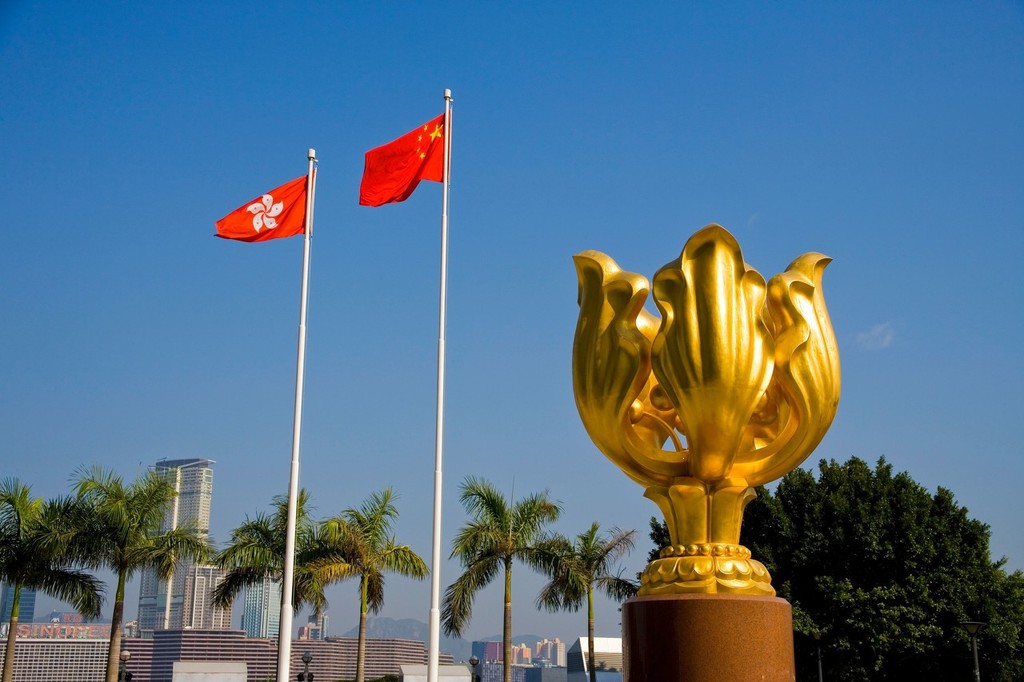Stability is foundation of reform, development
By Robert Lawrence Kuhn | China Daily Global | Updated: 2019-08-13 09:01

Among the topics I think I know well, I do not count Hong Kong. Although I visit Hong Kong, have friends in Hong Kong and research Hong Kong for my writings-for example, its repatriation to China and the Asian financial crisis, both in 1997, and the recent Greater Bay Area coordinated development plan-I do not know Hong Kong like I know Beijing.
That's why, when the protest movement began, I was reluctant, at least initially, to accept interview requests from the international media. If I could not speak authoritatively, I should not speak at all.
But as the situation continued deteriorating and the requests kept coming, I began to consider what I do know. In writing my book How China's Leaders Think, I spoke with dozens of Chinese leaders and officials, including then Zhejiang Party Secretary Xi Jinping, who advised me to think of China both horizontally in its great geographic diversity and vertically in its long history of civilization.
When I am interviewed on Hong Kong, I begin with basics: Why is Hong Kong so important to China? I offer five reasons-two economic, three political.
The first is that Hong Kong has been the gateway for doing business in China, facilitating reform and opening-up and catalyzing the country's economic miracle. But with the rise of mainland markets, exemplified by Shanghai and Shenzhen, this role has diminished.
The second economic reason is the Guangdong-Hong Kong-Macau Greater Bay Area, a vital strategy for transforming China's economy via coordinated development. The Greater Bay Area's GDP is around $1.7 trillion, or 12 percent of China's GDP, and is projected to reach around $3.5 trillion by 2030. If the Greater Bay Area were a country, its GDP would rank almost in the world's top 10.
The first political reason of Hong Kong's importance to China is that it exemplifies the "one country, two systems" policy that enables Hong Kong's special status. The second is that Hong Kong represents China's historic reclamation, after more than a century of oppression and humiliation, of global presence and importance. The third is that Hong Kong reflects China's international image and soft power.
The central government seeks the best for Hong Kong, stressing social stability, essential for economic development, and rule of law, essential for social development. Beijing will defer to the local Hong Kong government as much as possible and as long as possible, thus sustaining the "one country, two systems" policy.
But three red lines cannot be crossed: movement toward Hong Kong independence or even quasi-independence, which includes one-person-one vote elections for local leaders; using Hong Kong to undermine the mainland's Party-led political system; and unending chaos such that Hong Kong's economic viability would be threatened.
The central government will make the absolute minimum interventions necessary to safeguard these three red lines, but it will, under all circumstances, safeguard them. In a recent news conference, Zhang Xiaoming, director of the Hong Kong and Macao Affairs Office of the State Council, said the central authorities will never sit by if the situation in Hong Kong worsens to a level of turmoil that the SAR government cannot control.
Given interconnectedness, the turmoil in Hong Kong cannot be much quarantined from all China, where stability has been the foundation for reform and development. In his domestic policy, President Xi pledges to win the "three tough battles"-preventing financial risks, reducing poverty and tackling pollution.
If social turmoil in Hong Kong seems unrelated to, say, poverty alleviation on the mainland, this is the crux of the matter, as seen by China's leaders.
China's economic growth has lifted over 750 million Chinese out of poverty, the greatest success story in human history. In late 2012, when Xi became China's senior leader, there were about 100 million Chinese who would remain intractably poor. Xi asserts that China cannot be a "moderately prosperous society" by 2021-China's first national goal-if any of its citizens live below the line of absolute poverty. Hence, Xi mobilized the Party and the country to fight poverty.
Who can deny that China's astounding success in poverty alleviation is related to political stability and Party leadership?
All forms of governance systems have trade-offs, and only collective human wisdom can discern what is optimum for each social group under its own conditions at its own times. But I'm rather confident that, under China's conditions, the vast majority of those hundreds of millions of Chinese who have been lifted out of poverty would be pleased that political stability enabled economic development and Party leadership delivered poverty alleviation.
Looking forward, Hong Kong is China and will remain China. While no doubt some radicals favor violence, and some Western politicians encourage protests, the challenge for Chinese wisdom is to see what it will take, in the long term, to secure the kind of robust stability that empowers creative, dynamic, knowledge-based development for the benefit of all.
The author is the host and writer of the feature documentary "Voices from the Frontline: China's War on Poverty" (Adam Zhu, executive producer). In December 2018, Dr Kuhn received the China Reform Friendship Medal. The views do not necessarily reflect those of China Daily.
























